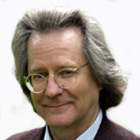 While even the most tyrannical regime will pay lip service to free speech, it is a right that is constantly denied
While even the most tyrannical regime will pay lip service to free speech, it is a right that is constantly denied
There are two bedrock civil liberties without which the very idea of civil liberty is empty. They are freedom of speech and due process of law. Free speech is fundamental because without it one cannot have any other liberties. One cannot claim or exercise one’s other liberties, or defend them when attacked; one cannot defend oneself when accused, or accuse those who do one wrong; one cannot have democracy in which information views and policies are expressed, debated and challenged; one cannot have education worth the name, if there are things that cannot be said; one cannot express one’s attitudes, needs, feelings, responses, anger, criticism, support, approval or beliefs; one cannot ask all the questions one needs to or would like to; and for all these reasons, without free speech one would be in a prison made of enforced silence and averted thought on important matters.
So fundamental is free speech that in the United States the first amendment to the Constitution, in the document that constitutes the Bill of Rights for American citizens, is an express protection of the rights to freedom of speech and the press, to assemble, to petition the legislature, and to think and believe freely in matters of religion (or non-religion). Indeed every human rights instrument, from the United Nations Universal Declaration of Human Rights (article 19) to the European Convention on Human Rights (article 10), and most written constitutions (even those that window-dress tyrannies) have clauses protecting free speech. Note that many of these instruments quite rightly prefer the term ‘freedom of expression’ in cognizance of the fact that ‘expression’ is a broader than ‘speech’, for it includes artworks, theatre performances, novels, dance and much besides that is not specifically or only speech as such. However ‘free speech’ and ‘freedom of expression’ are functionally synonymous in the civil liberties sense, and are widely understood as
such.
The fundamental justifications for freedom of expression are as follows. First, it is an intrinsic right of every individual not to be forced to think, speak and believe at the dictate of others, but to do these things of their own free accord. Secondly, it is of the essence to the possession and protection of other liberties that individuals have this right. Thirdly, in the absence of the first two considerations, the full development of the human individual is vastly more difficult and in most cases not even possible, Fourthly, freedom of expression is essential to the interchange of ideas and views, and discussion of them, without which society cannot be healthy or mature. Fifthly, by means of the fourth point it promotes and aids the quest for truth or at very least sound and responsible knowledge. Sixthly, it is a vital check on government, which can too easily veer into tyranny without it.
As every proponent of freedom of expression must allow, the right to it is not an unqualified one. The standard way of explaining why is to cite the case of someone’s shouting ‘Fire!’ in a crowded theatre when there is no fire. Because it can do harm, and because it can be used irresponsibly, there has to be an understanding of when free speech has to be constrained. But given its fundamental importance, the default has to be that free speech is inviolate except … where the dots are filled in with a specific, strictly limited, case-by-case, powerfully justified, one-off set of utterly compelling reasons why in this particular situation alone there must be a restraint on speech. Note the words specific strictly limited case-by-case powerfully justified one-off utterly compelling this particular situation alone. Give any government, any security service, any policing authority, any special interest group such as a religious organisation or a political party, any prude or moraliser, any zealot of any kind, the power to shut someone else up, and they will leap at it with alacrity.
Hence the absolute need for stating that any restraint of free speech can only be specific, strictly limited case-by-case, powerfully justified one-off, utterly compelling this-particular-situation-alone.
For as these remarks suggest, the enemy of all that freedom of expression makes possible — the six points, at least, detailed above — is censorship. It comes as a surprise to most people to learn how universal censorship is, even in contemporary Western liberal democracies. In every sphere and at every level censorship is the norm. Governments censor information before it reaches the public.
Newspapers and television news reports do not show pictures of maimed bodies on battlefields, and by their sanitising censorship inadvertently help keep war going, for the public would be revolted by the truth and sentiment would swing violently against armed action. Teachers and parents censor what they tell children. Leaving things out, doctoring pictures, maps, reports, news, information, whether for tendentious purposes, political ‘spin’, or in the supposed interests of the tender-minded recipients, are all forms of censorship. It is ubiquitous and constant. It does vastly more harm than good.
This is an edited extract from AC Grayling’s latest book, Ideas That Matter: Key Concepts for the 21st Century





